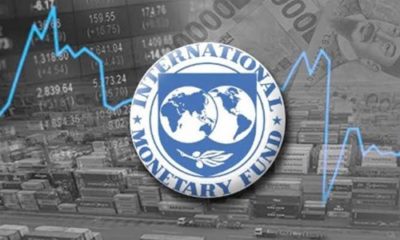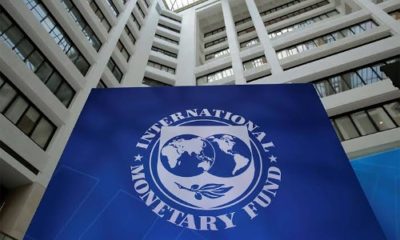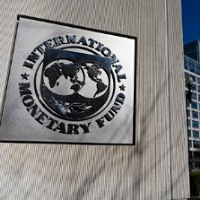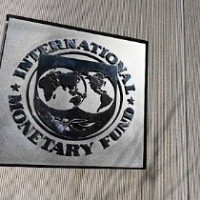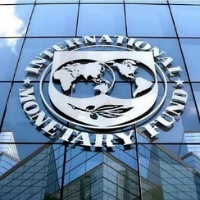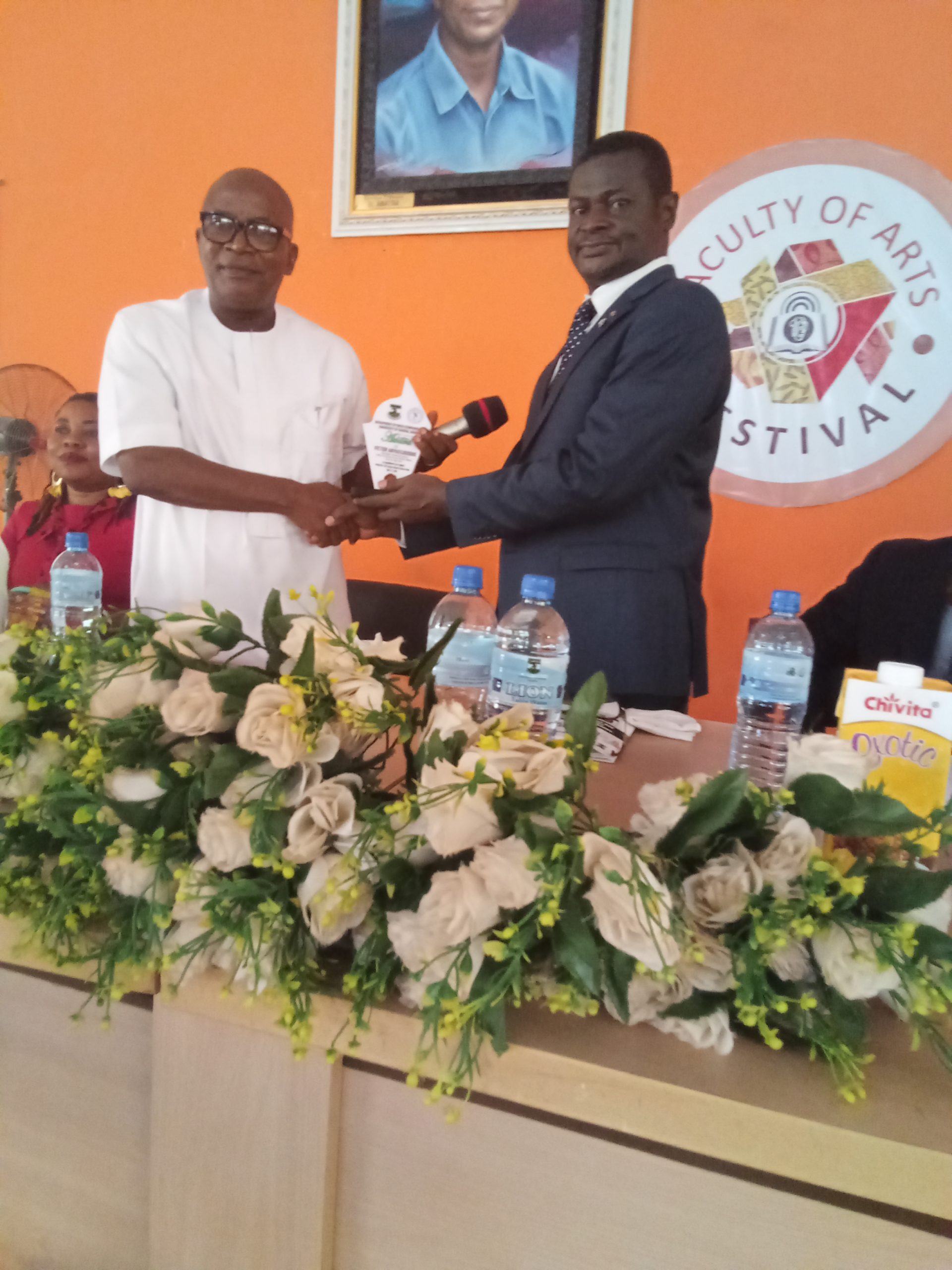Finance
IMF to scrutinise Nigeria’s 2016 budget—Lagarde

….Backs Buhari’s fight against corruption
…Says with right policies, Nigeria has no reason to borrow
ABUJA — There were indications that the 2016 Appropriation Bill may be subjected to further scrutiny and amendments by the International Monetary Fund, IMF, despite being already presented to the National Assembly for legislative action.
Managing Director of IMF, Ms Christine Lagarde, who is visiting Nigeria, told newsmen in Abuja, yesterday, that the multilateral financial institution would be discussing the budget next week with Nigerian officials.
Lagarde responding to question on the 2016 budget said: “A team of economists is going to come here (Nigeria) next week to review and audit (the bill) and have a good discussion with the government authorities to really assess whether the financing is in place, whether the debt is sustainable, whether the borrowing costs are sensible and what strategy must be put in place in order to address challenges going forward.”
 The IMF boss, who held meetings with the Central Bank of Nigeria, CBN; Finance Minister, Mrs. Kemi Adeosun, as well as a closed door sessions with President Muhammadu Buhari and Vice President Yemi Osinbajo, had refused to comment directly on the content of the 2016 Appropriation Bill because there are procedures at the IMF that must be followed.
The IMF boss, who held meetings with the Central Bank of Nigeria, CBN; Finance Minister, Mrs. Kemi Adeosun, as well as a closed door sessions with President Muhammadu Buhari and Vice President Yemi Osinbajo, had refused to comment directly on the content of the 2016 Appropriation Bill because there are procedures at the IMF that must be followed.
She noted that she will continue to have discussions with Nigeria’s Finance Minister and CBN Governor on issues of fiscal discipline, financing, monetary policies and the degree of flexibility, because despite “Nigeria being a vibrant and large economy still has to deal with a lot of poor people with a lot of inequality. Those two components should certainly always be the drivers of reforms, whether it is looking at subsidies, how they are structured and how they can be faced out.”
Don’t strangulate poor Nigerians
Following the dwindling oil prices that have apparently affected the national income of most countries, the IMF boss warned the Federal Government not to strangulate poor Nigerians with rigid economic policies.
She also stated that it was concerned by the condition of teeming population of poor Nigerians who would be affected by the rigidity of policies, stressing the need to inject fiscal discipline in the policy formulations.
According to Lagarde, her mission to Nigeria was not connected to the negotiations of any loan with any kind of conditionalities but to have discussion on the economic reforms and objectives of the present government.
A lot has changed in Nigeria
Recalling the tremendous progress Nigeria has made in its democratic process, Lagarde said a lot had changed in the country since she last visited four years ago.
She said: “I was in Nigeria four years ago and in four years, many things have changed. That has been the topic of our discussions with President Buhari and his team. Looking back four years ago, massive democratic change has occurred in this country peacefully. Nigeria has become the largest economy in Africa, certainly the most populated and with a very attractive market.
“But things have changed in a more complicated way in the sense that the source of revenue to the government of Nigeria which was predominantly oil has seen its price divided by more than half and the financing cost around are beginning to rise if only because the economic situation in the United States has improved and interest rates will begin to rise. Added to which emerging countries economies are decelerating their growth.
Not here to negotiate loan
“First, let me make it clear that I’m not here nor is my team in this country to negotiate a loan with conditionalities. We are not into programme negotiations and frankly at this point in time, given the determination, resilience displayed by the President and his team, I don’t see why an IMF programme will be needed. So, of course, discipline is going to be needed, of course, implementation is going to be key for the objectives and the ambitions to serve the country well, in order for it to be actually sustainable.
“We believe that with very clear primary ambition to support the poor people of Nigeria, there could be added flexibility in the monetary policy, particularly if as we think, the price of oil is likely to be possibly low for longer, because clearly the authorities should not deplete the reserves of the country, simply because of rules that will be exceedingly rigid. I’m not suggesting that but that rigidity be totally removed but some degree of flexibility will be enough.
“We have excellent discussions with Buhari and we discussed the challenges ahead stemming from oil price reduction. The necessity to apply fiscal discipline and the need to also respond to the population needs while addressing the Medium Term specifics of improving the competitiveness of Nigeria and yet also focusing on the short term fiscal situation which requires that revenue sources be identified in order to compensate the shortfall resulting from oil price decline.
“Oil is not the major contributor to the Nigerian GDP, it is only about 40 per cent but it is a big source of revenue for the government.
To discuss budget next week
“We discussed with the President, Vice President and the Minister of Finance and Minister of Budget how more efficiency, more transparency, better accountability, enlarging the base of revenue could actually contribute to sound budget going forward.
“It is not for me here and now to actually approve or comment on the budget because we have procedures in the IMF under which a team of economists is going to come next week actually to do what we call the Article 4 which is to review….good discussion with partners, IMF on one hand, country’s authorities on the other hand to really access whether financing is in place, whether the debt is sustainable, whether the borrowing cost are sensible and what strategy put in place in order to address challenges going forward.
On war against corruption
“But what I certainly mentioned to Mr. President was that his fight and his determination to fight corruption and his determination to bring about transparency and accountability at all levels of the economy are very important agenda item and very ambitious goal that needed to be deliberated upon which he, himself is definitely committed to as he indicated this morning and as he inspires his team members.
“With that I am going to have more discussions with the finance minister, with Governor of Central Bank. We will be discussing issue of fiscal discipline, financing monetary policies and the degree of flexibility, all that with the fact that Nigeria with a vibrant large economy still has to deal with poor people, a lot of inequality and those two components should certainly be the drivers of reforms, whether it is looking at subsidies and how they are structured and how they can be phased out, whether it is monetary policy and the flexibility needed and knowing what effect it has on the poor, all, of those are ambitions that we could quickly recognize and support.”
IMF backs Buhari’s war against corruption
The IMF MD, who was flanked by the Minister of Finance, Mrs Kemi Adeosun, at the beefing also lauded the anti-corruption fight of President Buhari, saying that the course would engender the needed transparency and accountability in the financial system of the country.
“But what I certainly mentioned to Mr. President was that his fight and his determination to fight corruption and his determination to bring about transparency and accountability at all levels of the economy are very important agenda item and very ambitious goal that needed to be deliberated upon which he, himself is definitely committed to as he indicated this morning and as he inspires his team members,” she said.
Ministers’ll give accounts of funds —Buhari
Meanwhile, President Buhari has said that his ministers will render accurate account of every kobo they spent in their respective ministries.
He also said that his administration will enforce regulations to stop financial leakages and adopt global best practices in generating more revenue to mitigate the effect of dwindling oil prices on the Nigerian economy.
The president, who gave the assurance when he received the IMF boss at the Presidential Villa said that his administration will enforce greater discipline, probity and accountability in all revenue generating agencies of the Federal Government.
He said: “We have just come out of budget discussions after many weeks of taking into consideration the many needs of the country, and the down turn of the economy with falling oil prices and the negative economic forecasts.
“We are working very hard and with the budget as our way forward, we will do our best to ensure that our country survives the current economic downturn.
“We have also told all heads of Ministries, Departments and Agencies of government that on our watch, they will fully account for all funds that get into their coffers.”
Banking
CBN Denies Currency Devaluation

The Central Bank of Nigeria (CBN) has refuted claims of devaluing the.
Earlier reports suggested that the CBN had devalued the Naira, lowering its exchange rate from N631 to the dollar, compared to the previous day’s rate of N461.60 at the Importers and Exporters (I&E) window.
However, the Central Bank of Nigeria (CBN) released a statement on Thursday through its Acting Head of Corporate Communications, Dr. Isa Abdulmumin, categorizing the report as false information.
In the statement titled ‘CBN Has Not Devalued The Naira’, he said the attention of the apex bank was drawn to the news report by an Abuja based newspaper edition of June 1, 2023, titled “CB Devalues Naira To 630/51”.
However, the CBN stated categorically that the news report was replete with outright FALSEHOODS and destabilizing innuendos, ‘reflecting potentially willful ignorance of the said medium as to the workings of the Nigerian Foreign Exchange Market.’
“For the avoidance of doubt, the exchange rate at the Investors’ & Exporters (I&E) window traded this morning (June 1, 2023) at N465/USS1 and has been stable around this rate for a while.
“The public is hereby advised to ignore the news report by Daily Trust in its entirety, as it is speculative and calculated at causing panic in the market,” the CBN spokesman added.
He, therefore, advised media practitioners to verify their facts from the Central Bank of Nigeria before publishing in order not to misinform the public.
Banking
BREAKING: CBN Increases Interest Rate By 0.5%

The interest rate in Nigeria has been raised to 18.5 percent, up by 0.5 percent, from 18 percent where it was pegged in March 2023.
The Central Banks of Nigeria’s (CBN) Monetary Policy Committee (MPC) resolved to this effect at its third meeting of 2023 in Abuja, on Wednesday.
Governor, CBN, Godwin Emefiele, made the disclosure in the communiqué of the MPC’s meeting, thereafter.
While engaging the media at the end of the two-day meeting, Emefiele, said the committee voted to keep the asymmetric corridor at +100 and -700 basis points around the MPR.
In the view of the MPC, rising inflation rate is traceable to the high energy cost and challenges around the supply chain, among others, which lie outside the corridors of the CBN.
Emefiele said, “The current trend in price development would continue to be monitored by the bank with greater collaboration with fiscal authority to address the drivers of inflation.”
Biztellers reports that the CBN had effected six consecutive interest rate increases, which has seen the rate move from 11.5 percent in March 2022 to 18.5 percent in May 2023.
Finance
Dangers Lurk As Nigerians Resort To Refurbished Gas Cylinders

In Nigeria, people have been forced to come up with creative solutions to cope with the effects of inflation and the economic crisis.
These improvised strategies have not only helped individuals save money, but also enabled them to stay afloat during difficult times.
In a concerning development, the recent trend of boycotting the high cost of cooking gas cylinders in Nigeria may pose a greater risk to lives than it does in terms of saving money.
Economy&Lifestyle investigations have revealed that the soaring prices of gas cylinders have reached a point where it has become increasingly challenging for average households to afford them, let alone refill them with gas.
The situation is further exacerbated by the fact that the pump price of kerosene, which would typically serve as an alternative, has become prohibitively expensive.
Upon investigation, it was found that the prices of gas cylinders vary depending on their sizes. A 3kg gas cylinder is priced at N14,000, while a 5kg cylinder costs N16,000. The larger cylinders are even more costly, with a 6kg cylinder priced at N17,000 and a 12.5kg cylinder costing N19,000.
Additionally, the expense continues when it comes to filling these cylinders with cooking gas, as it costs N2,600 for a 3kg cylinder, N5,200 for a 6kg cylinder, N8,950 for a 10.5kg cylinder, and N10,650 for a 12.5kg cylinder.
Consequently, an average household that needs to replace a worn-out 5kg cylinder would have to come up with N20,250 to purchase a new cylinder and fill it with gas, which can be a difficult feat to achieve.
As a result, many people have resorted to refurbishing their old cylinders and trying to use them as best as they can. However, this approach poses a significant danger.
Mrs. Rukayat Adesoji, a trader, shared her experience regarding her gas cylinder, which had become rusted and could no longer stand upright since last month. Due to the exorbitant prices of purchasing new cylinders, she resorted to seeking the assistance of a welder.
The welder patched the legs of the cylinder, repainted it, and ever since then, she has been using the refurbished cylinder for her cooking needs.
She said ““My gas cylinder which was 6kg got rusted and no longer stands erect since last month. When I asked for the price, I was told it was N17, 500. I was discussing it with a friend who advised me to take it to a welder to paint it and construct a new stand. I heeded to her advice and at the end spent just N3, 000 to turn my cooking gas to a brand new.”
Apart from refurbishing cylinders, some people don’t even know when their cylinders will expire. Mrs. Mercy Opara, a hair stylist, falls in that category as she explained: “I am taking my gas cylinder to the welder to spray it for me. It just cost N1, 500.
“The cost of buying a new cylinder is high. I have been using my cylinder for over 7 years and I don’t even know the expiry date. I just pray God blesses me so that I can buy a new one. But this one I am managing will look neat after spraying it for another two years.”
Mr. Adekanbi Joseph, a wielder, said he paints cylinder and “To paint and rebuild a cylinder stand, I charge N4, 500. Many people come here to paint as a new cylinder is now very expensive to get.”
Highlighting the potential dangers of using refurbished cylinders, Mr. Benjamin Hope, the Chief Executive Officer of FKT Cooking gas and general goods, emphasized the risks involved.
He stated that even a brand new cylinder can pose a risk of explosion if the locks are not properly secured after use or if the cylinder filled with gas is moved from one location to another.
He said “A brand new cylinder can explode if the locks are not well keyed after using and if the cylinder filled with gas was moved from one place.
“There are many reasons for the high cost of gas cylinders in Nigeria. One is the cost of importation due to the exchange rate. Another is the increased migration from the use of kerosene to cooking gas which has necessitated increased demand for gas cylinders. You know that in such a case there will be increased importation of cylinders.”he added


